Garden writing is the place where metaphors yearn to live their best lives. There is no concept of growth, renewal, regeneration, nourishment, cultivation, encouragement that cannot be communicated beautifully with the garden as comparison and vehicle.
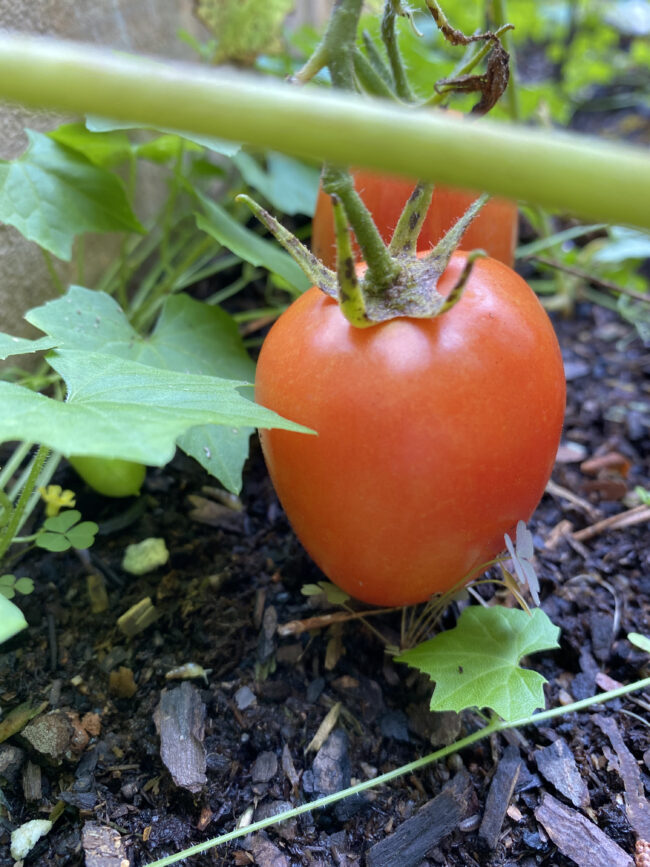
For my part, I consider myself a laissez-faire gardener in the extreme. My husband and I spend a never-as-grueling-as-expected spring day–usually pretty late in the spring, when other gardens nearby are salivating over their early-bird tomatoes–and we enhance the soil with a giant delivery from the home improvement store. We loosen the dirt in our raised beds with shovel and spade, then fold in manure and compost and topsoil.
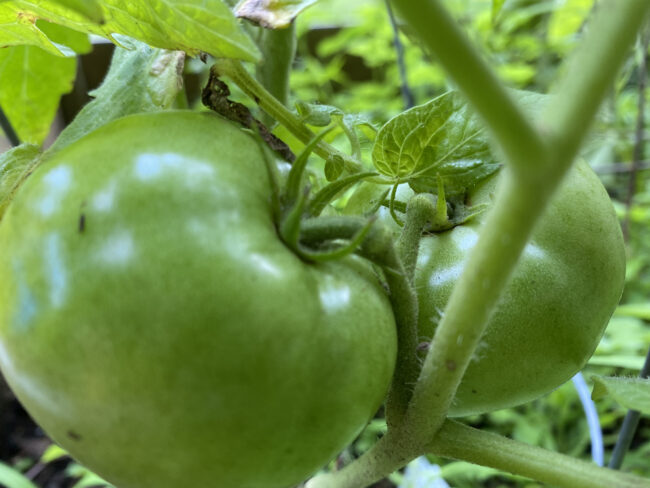
We plant all the dreamy things. Some years, our son and I pore over seed catalogs and have earnest discussions about world hunger and food waste as we select the most exotic varieties or the heirloom seeds with the best stories. Other years, we panic buy at Lowe’s the very last of the almost-decent potted vegetables during a weekend sale before it’s officially Way Past Too Late to successfully put a garden in the ground.
And then we take them home and nestle them in the beds, tucking them in with delight and satisfaction and crescents of black earth under our nails that won’t rinse clean for a week.
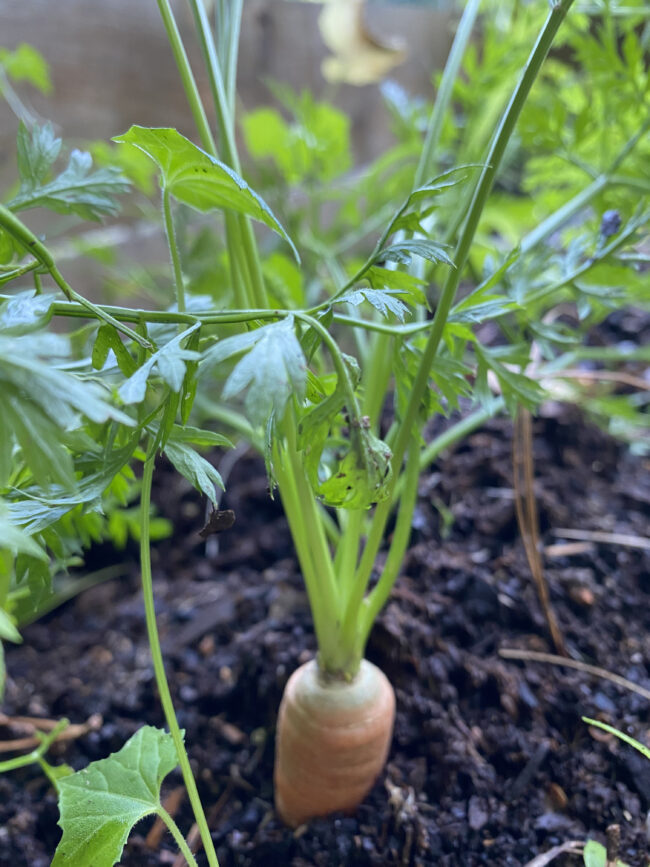
After that? Truth be told, I forget about it, more or less. We don’t weed. We don’t mulch. We don’t scare away pests or fauna. We lose eggplants to aphids and zucchini to the deer that leap into our (distinctly suburban) neighborhood as they flee the dangers of the interstate. And we cry over none of it. We have an automated irrigation hose that turns on each morning and turns off after an hour, and we live in a sunny, humid climate where if you want to NOT grow things, that’s the hardest work you’ll ever do.
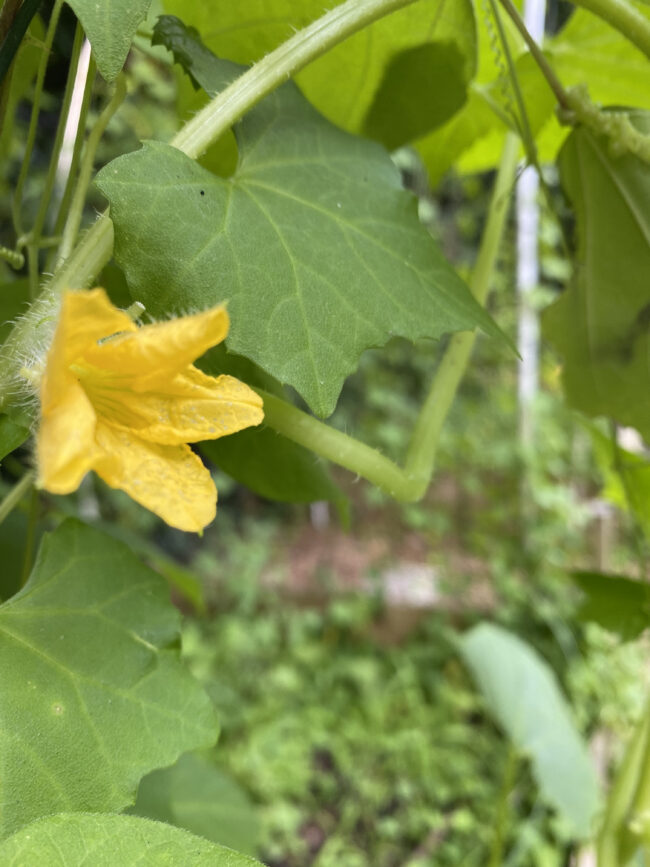
I visit it. When I pull into the driveway and I’m already in my gym clothes and sneakers, rather than head into the kitchen I shoulder my handbag and walk to the garden. I work my way across the six raised beds from right to left, which is opposite how we read, so it feels a little like an adventure on a very pedestrian scale. I look to see what proportion of the lush, verdant foliage is vegetable and what is green grass or creeping ivy from the neighbor’s yard that sneaked through the chain link to invade our robust soil. I look for earthworms. I breathe in the green.
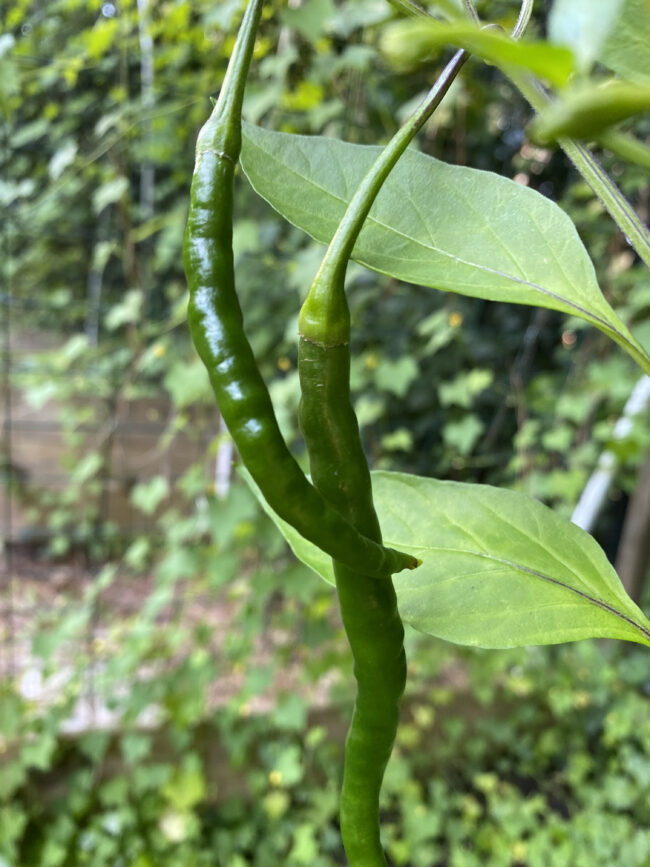
That’s when I see what’s growing. Every single thing is a surprise, every time. A new flower. A new color. A long chili pepper that will ripen to a deep crimson, so we can grind it in our kitchen mortar that we bought on a trip to Paris, and our son can use it to make salsa for Taco Tuesday. A miniature bunch of the tiniest tomatoes you’ve ever held in your hand, each no bigger than the tips of your fingers, and after harvesting a dozen, they’re far too tempting to carry indoors without eating them all like Tic Tac, right there by the garden bed. A huge zucchini flower seeking its mate, which for some reason in our garden it never seems to find, so really we ought to harvest the flowers for frying rather than hoping against all past experience that THIS time we’ll see a green squash the size of a baby’s arm lying in the dirt. A carrot peeking out of the black with its glowing shoulders seeking the sun.
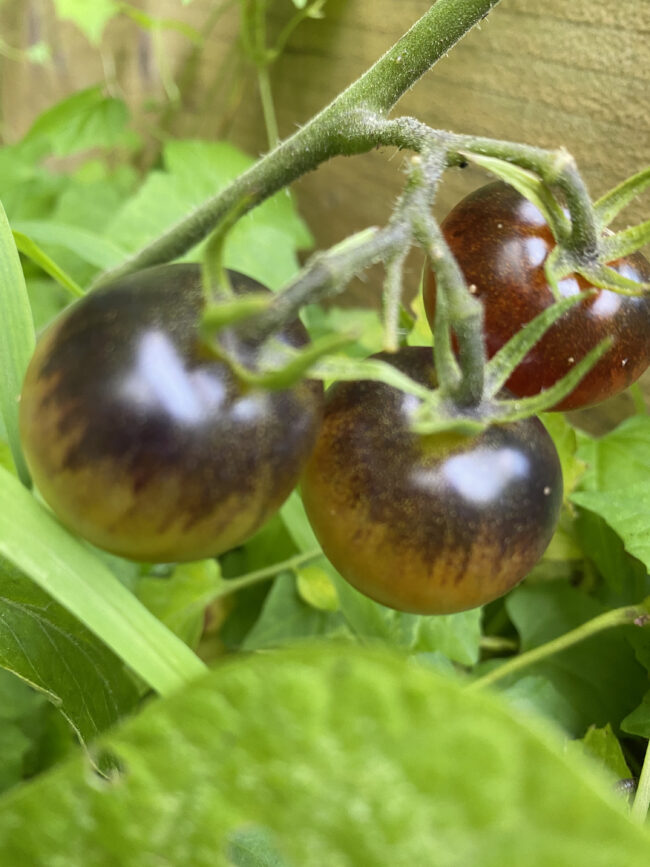
Most of the plants we select are indeterminate, so we harvest as the season rolls along, languorous and much too hot to move very fast. This year, we’ve chosen tomatoes that will all come ripe at once, with the hope that we’ll dry the basil and oregano growing in planters on the patio and make our own pizza sauce to freeze for when the grey skies of February cast doubt on another summer ever coming our way.
I wonder if that’s a lot to expect of our untroubled gardening ways. I don’t think of it as laziness–it doesn’t feel like I don’t care, or that I’m not motivated. It feels more like an experiment, like I’m waiting and open-handed about what happens in the garden in a way I struggle to be with people, or with myself. Like, it’s OK if nothing happens in the garden, or at least if nothing happens fast, and if we get even a little glimmer of a harvest here and there, that’s more than enough. Not because my expectations are low, but because it all seems like a miraculous delight, like a gift beyond my imagining, even if it’s a thimble of a tomato.
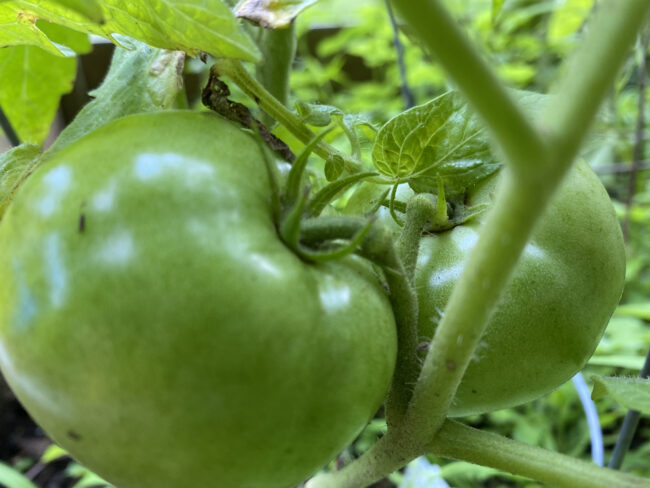
I’m not sure where to go with the rest of that metaphor. I don’t think I’m actually learning to be more patient with others, or more accepting of myself. I’d love to be more like Anne Lamott, honestly, and offer a deep insight here. At this stage, I can’t honestly say I’m applying these lessons to my actual, you know, BEHAVIOR. But I’m curious. And that feels good. It feels good to have a haven, six little plots that measure four feet by eight, where I don’t need to solve a problem or have the answers, where whatever happens is Just Right, and there’s always another delicious delight to surprise me, from April to November.


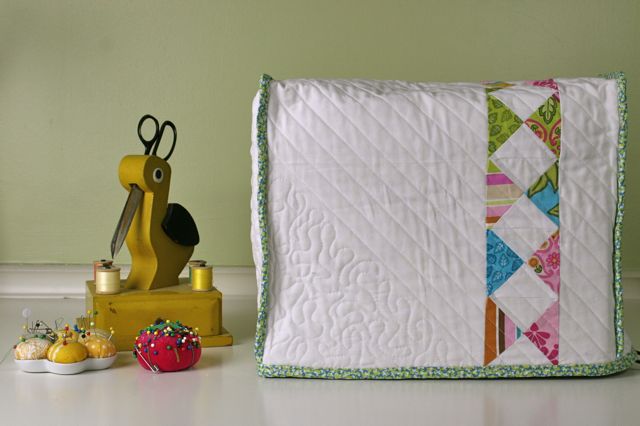
Deborah Makarios
July 20, 2021 at 11:51 pmI garden on clay, and it’s mud a lot – until summer, where it bakes hard. I am trying to learn the patience to improve the soil instead of just planting All The Things and hoping something other than the weeds survives.
Deborah
August 3, 2021 at 11:55 amThose weeds are fighters!! Our soil is super clay-ey, too, and we finally built raised beds to fill with amendments. All the good sol washed away down the hill otherwise, and we ended up with melons + cucumbers by the air conditioner, which was…suboptimal. Wishing lots of delicious goodies from your garden for you this season!!